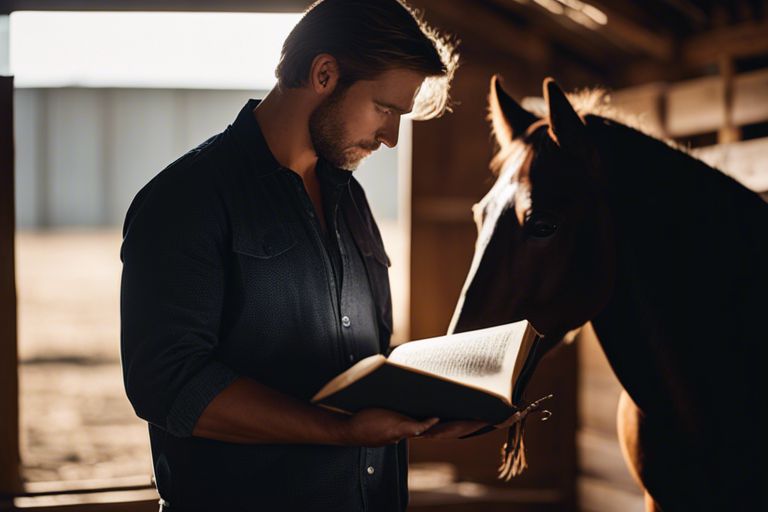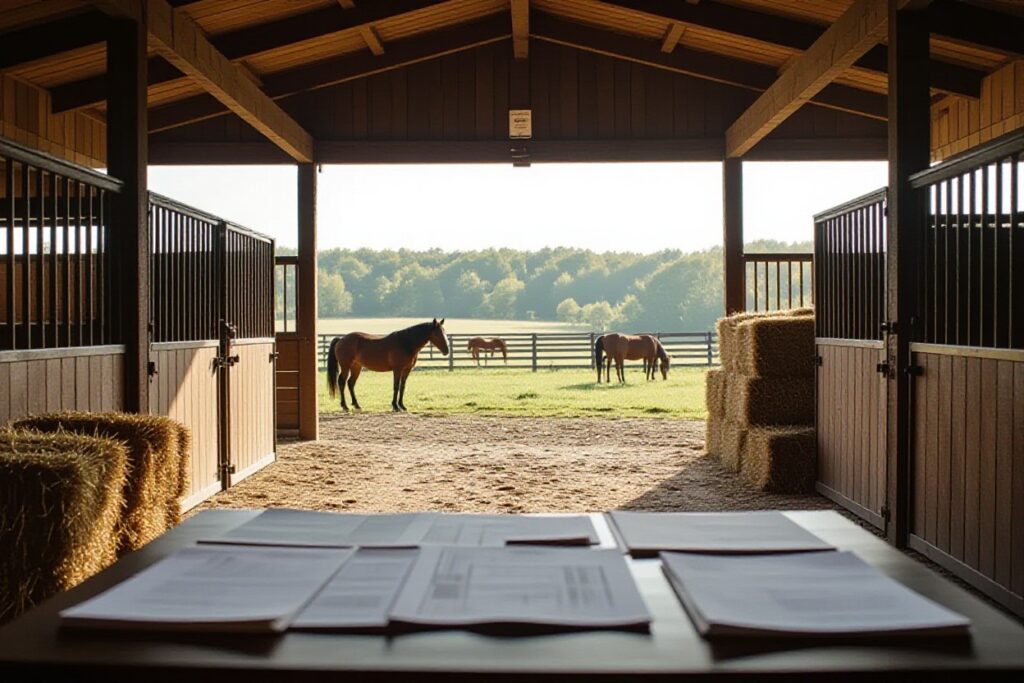Legal matters can be complex, but as a horse owner, understanding equine law is crucial. Whether you board your horse, participate in competitions, or simply enjoy leisurely rides, being informed can protect you and your equine companion. From liability issues to insurance requirements, this article will guide you through the important legal aspects of horse ownership to ensure you are protected and prepared for any situation that may arise.
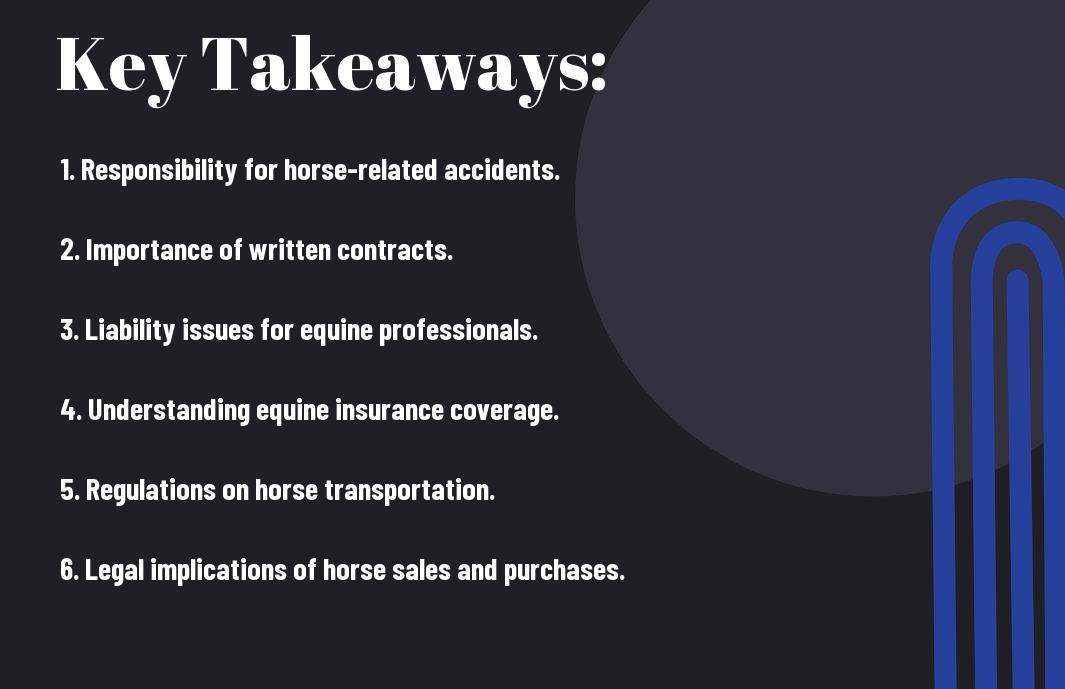
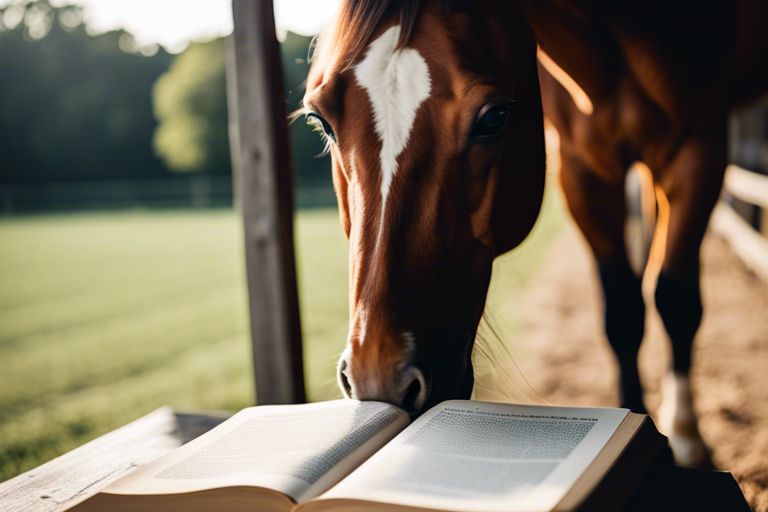
Equine Law Basics
Definition and Scope of Equine Law
Equine law refers to the body of laws and regulations that specifically apply to horses, horse-related activities, and horse owners. This area of law covers a wide range of issues, including but not limited to horse sales, leases, liability for horse-related accidents, property damage caused by horses, and zoning regulations for horse properties. It is crucial for every horse owner to have a basic understanding of equine law to protect themselves, their horses, and their assets.
Importance of Knowing Equine Law for Horse Owners
Equine law is vital for you as a horse owner to navigate the potential legal pitfalls that can arise in the course of owning and caring for horses. Understanding equine law will help you make informed decisions about liability, contracts, insurance, and property rights related to your horses. By being aware of your legal rights and responsibilities as a horse owner, you can prevent legal disputes, protect yourself from costly litigation, and ensure the well-being of your equine companions.
Equine law knowledge empowers you to proactively address legal issues that may arise in the horse industry. By staying informed and seeking legal guidance when needed, you can safeguard your interests and maintain a positive relationship within the equine community. Do not forget, ignorance of the law is not a defense, and being proactive in understanding equine law can save you time, money, and potential legal troubles in the long run.
Horse Ownership and Liability
Legal Responsibilities of Horse Ownership
Ownership: As a horse owner, it is crucial to understand your legal responsibilities. This includes providing proper care, shelter, and medical attention for your horse. Failure to do so could result in legal consequences, including fines or even the removal of your horse.
Liability for Horse-Related Accidents or Injuries
Injuries: Concerning horse-related accidents or injuries, it’s necessary to be aware of your liability. If someone is injured while riding or interacting with your horse, you could be held legally responsible. This may include medical expenses, compensation for pain and suffering, and even legal fees if the injured party decides to file a lawsuit against you.
Plus: In some cases, even if you were not directly involved in the accident, you could still be held liable as the horse owner. It’s crucial to have proper insurance coverage to protect yourself in such situations.
Insurance Options for Horse Owners
Insurance: To safeguard yourself from potential liabilities, it’s wise to invest in appropriate insurance as a horse owner. Equine insurance can cover a range of scenarios, including injuries to third parties, property damage caused by your horse, or even medical expenses for your horse’s care. Having the right insurance can provide you with peace of mind and financial protection in case of unforeseen events.
Purchase and Sale Agreements
After deciding to purchase a horse, the next crucial step is to establish a solid purchase and sale agreement. This legal document outlines the terms and conditions of the sale, protecting both the buyer and the seller throughout the transaction.
Essential Clauses in Horse Purchase Agreements
An crucial clause in a horse purchase agreement is the description of the horse being sold, including its registered name, age, breed, color, and any distinguishing marks. Additionally, **strong** clauses related to the purchase price, payment terms, delivery arrangements, and any contingencies such as a pre-purchase veterinary exam are crucial to include. **These clauses** ensure transparency and clarity, reducing the risk of misunderstandings or disputes down the line.
Dispute Resolution Mechanisms
On matters of dispute resolution, it is vital to include mechanisms in the purchase and sale agreement to address potential conflicts. These mechanisms may include **<strong** arbitration or mediation clauses, specifying how any disagreements will be resolved outside of court. By including clear **<strong** dispute resolution provisions, you can streamline the process and potentially avoid costly litigation.
Plus, **it** is crucial to clearly outline each party’s rights and responsibilities in the event of a dispute, as well as the governing law that will apply. **By** having these provisions in place, you can protect your interests and ensure a smoother resolution process in case of any disagreements.
Warranties and Representations in Horse Sales
For **peace of mind** during a horse sale, warranties and representations play a crucial role in safeguarding both the buyer and the seller. **Strong** warranties may pertain to the horse’s health, temperament, pedigree, or competition history, offering reassurance to the buyer regarding the horse’s qualities. Representations, on the other hand, are statements of fact made by the seller about the horse, influencing the buyer’s decision to purchase.
Agreements surrounding warranties and representations should be **carefully** drafted to ensure accuracy and completeness. **By** clarifying these terms upfront, you can minimize the risk of future disputes or misunderstandings regarding the horse’s condition or characteristics.
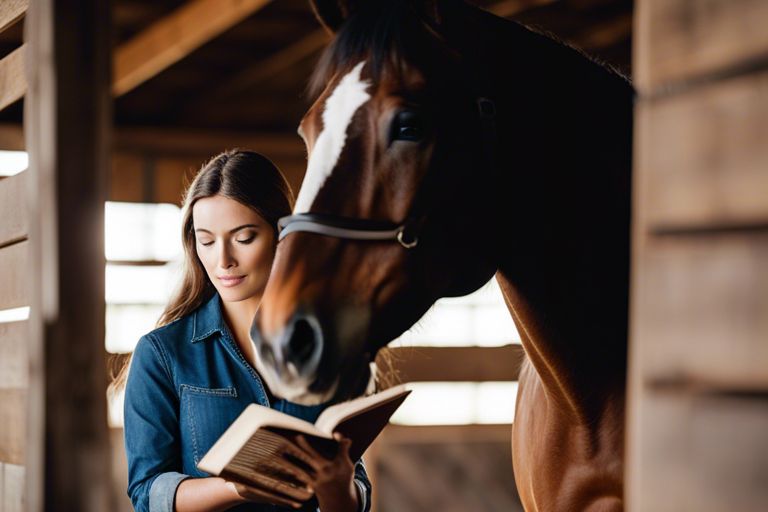
Equine Health and Veterinary Care
Not only is it crucial to provide proper care for your horse’s health and well-being, but as a horse owner, you also have legal obligations to ensure the welfare of your equine companion.
Legal Obligations for Horse Health and Welfare
Care for your horse involves not only providing food, water, and shelter but also ensuring they receive proper veterinary care when needed. Neglecting your horse’s health needs can lead to legal consequences, including fines or even seizure of your horse.
Veterinary Malpractice and Negligence
Veterinary malpractice and negligence can have serious consequences for your horse’s health and well-being. If a veterinarian fails to provide the standard of care expected in the industry, it could result in harm to your horse and potentially legal action against the veterinarian.
Another critical aspect to consider is the importance of finding a qualified and reputable veterinarian for your horse. Conducting thorough research and seeking recommendations can help you make an informed decision when choosing a healthcare provider for your equine companion.
Informed Consent for Veterinary Procedures
Obligations surrounding informed consent ensure that you, as the horse owner, are fully aware of and understand any medical treatments or procedures recommended by your veterinarian. It is crucial to ask questions, seek clarification, and give your consent before any procedures are performed.
Malpractice in this area can occur if a veterinarian performs a procedure without obtaining your informed consent, leading to potential legal issues and harm to your horse. Therefore, always ensure you are actively involved in decision-making regarding your horse’s veterinary care.
Boarding and Stable Management
Legal Considerations for Boarding Agreements
Keep in mind that **any** boarding agreement you sign is a legally binding contract. It is crucial to carefully review the terms and conditions outlined in the agreement before agreeing to them. **Any** ambiguities or unclear clauses can lead to disputes down the line. Make sure that the agreement clearly outlines responsibilities, fees, services provided, and rules and regulations of the facility.
Stable Management and Liability
**Boarding** your horse at a stable comes with its own set of risks and liabilities. While **boarding** facilities strive to provide a safe environment for your horse, accidents can still happen. It’s important to understand the extent of liability the stable assumes in case of injury to your horse or other individuals. Additionally, knowing the facility’s insurance coverage and whether you need to carry separate liability insurance can help protect you in case of unforeseen circumstances.
Legal advice can be beneficial in understanding the legal implications of boarding your horse at a particular facility. Consulting with an equine attorney can help clarify any legal jargon and ensure that you are adequately protected in your boarding agreement.
Dispute Resolution for Boarding Disputes
**Management** of disputes between you and the boarding facility can be challenging, but having a clear dispute resolution process in place can help mitigate conflicts. **Boarding** agreements often include clauses outlining the steps to take in case of disputes, such as mediation or arbitration. Understanding these mechanisms beforehand can save you time and money in the event of a disagreement.
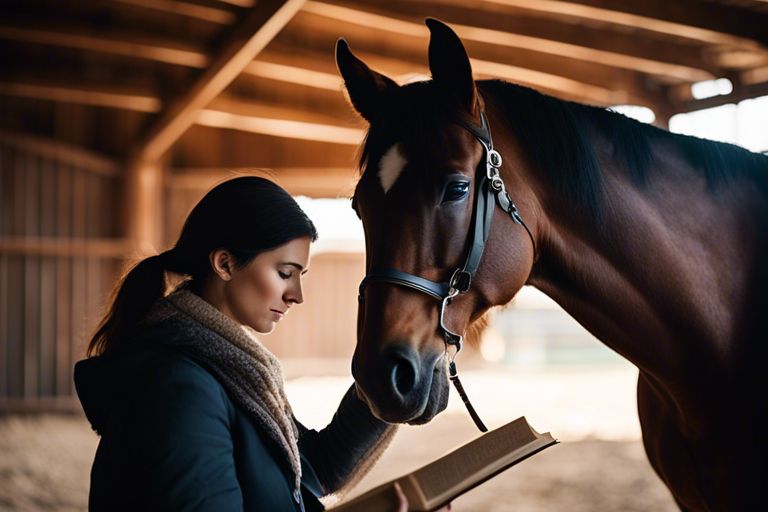
Breeding and Reproduction
Legal Aspects of Horse Breeding and Reproduction
All horse owners should be aware of the legal aspects surrounding breeding and reproduction. It is important to understand the laws and regulations that govern these processes to protect both the animals involved and your interests as an owner.
Contracts and Agreements for Breeding Services
An important aspect of horse breeding is the contracts and agreements that govern the services provided by breeding facilities or individual breeders. These contracts outline the terms of the breeding arrangement, including stud fees, mare care, and any guarantees or warranties.
With a well-drafted contract in place, you can protect yourself and your horse in the event of any disputes or issues that may arise during the breeding process.
Rights and Responsibilities of Breeders and Owners
Owners and breeders both have rights and responsibilities when it comes to horse breeding. Owners must ensure the well-being of their mares and offspring, while breeders are responsible for providing quality care and fulfilling their obligations as outlined in any contracts.
Understanding these rights and responsibilities is crucial to maintaining a positive and successful breeding relationship.
As far as breeding and reproduction, having a clear understanding of the legal aspects, contracts, rights, and responsibilities involved can help avoid misunderstandings and potential disputes, ensuring a smooth and successful breeding process.
Summing up
Ultimately, understanding equine law is vital for every horse owner to protect themselves, their animals, and their investments. By familiarizing yourself with legal concepts such as liability, contracts, and insurance, you can navigate the complexities of horse ownership with confidence and peace of mind. Remember that consulting with a knowledgeable equine attorney can provide you with tailored advice and assistance to ensure that you are best equipped to handle any legal issues that may arise in your equine pursuits.
Q: What is equine law?
A: Equine law refers to the area of law that deals with legal issues related to horses, including ownership disputes, liability issues, contracts, and regulatory compliance.
Q: Why is understanding equine law important for horse owners?
A: Understanding equine law is crucial for horse owners to protect themselves, their horses, and their assets in case of disputes, accidents, or legal issues related to their equine activities.
Q: What are some common legal issues that horse owners may face?
A: Some common legal issues that horse owners may face include liability for injuries caused by their horses, disputes over ownership or leasing arrangements, contract disputes with trainers or service providers, and compliance with zoning and regulatory requirements.
Q: How can horse owners protect themselves legally?
A: Horse owners can protect themselves legally by carefully drafting and reviewing contracts, obtaining appropriate insurance coverage, following safety regulations, and seeking legal advice whenever they encounter potentially contentious situations.
Q: What should horse owners do if they are facing a legal issue related to their horses?
A: If a horse owner is facing a legal issue related to their horses, they should consult with an attorney who has experience in equine law to understand their rights and legal options, and to navigate the legal process effectively.
